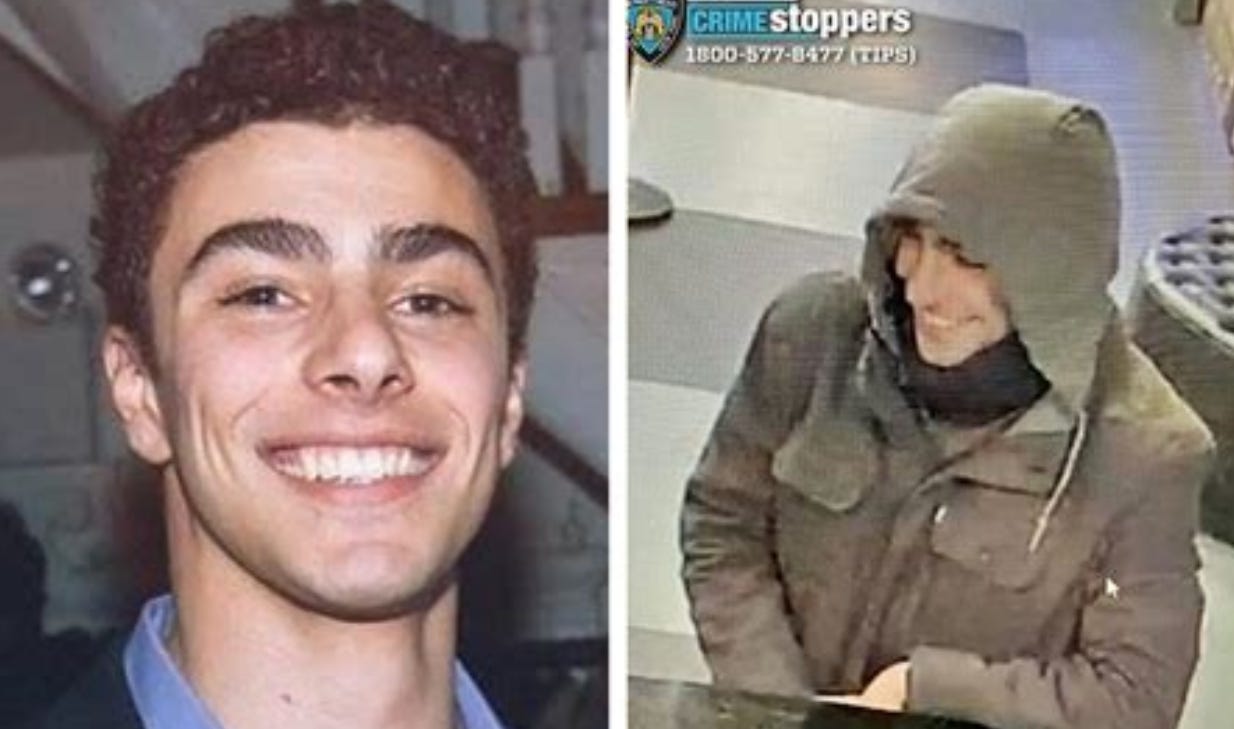Luigi Mangione: A Dark Empath in Action?
By weaponizing their empathy, dark empaths are capable of actions that blend charm and cruelty, often leaving their victims and observers confused about their true nature.
The assassination of Brian Thompson, the CEO of UnitedHealthCare, sent shockwaves across the nation. The arrest of Luigi Mangione, a man from a privileged background with an Ivy League education, has further fueled intrigue. As the details of the case emerge, it becomes clear that Mangione’s p…
Keep reading with a 7-day free trial
Subscribe to Crime and Society Newsletter to keep reading this post and get 7 days of free access to the full post archives.





